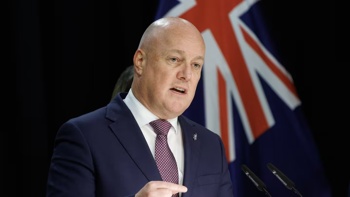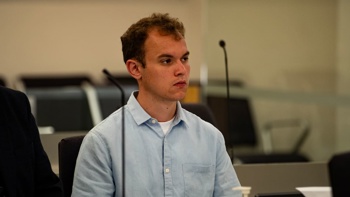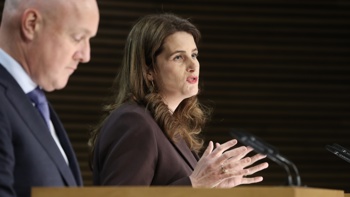- A Herald investigation has discovered single cigarettes are being sold illegally for $3 in Auckland’s Manurewa and Papakura.
- Councillor Alf Filipaina and Professor Chris Bullen called the practice “disgusting” and “predatory”.
- Selling single cigarettes undermines New Zealand’s goal of being smokefree by 2025, experts warn.
A Herald investigation has discovered single cigarettes are being sold illegally for $3 in some of Auckland’s poorest communities in a trade community leaders and academics have called “disgusting” and “predatory”.
Posts on the social media site Facebook seen by the Herald suggest the practice is relatively common in parts of Manurewa and Papakura and offer information about which shops participate in the illegal trade.
During a sting to test the validity of the claims, the Herald used a hidden camera to film while buying single cigarettes at two dairies in Manurewa where options for a $2.50 cigarette or a $3 version were offered.
Selling cigarettes in anything less than a pack of 20 has been outlawed for decades in an effort to prevent children buying them.
A packet of premium branded cigarettes like Dunhill blues or reds retail for $47, while Holiday branded cigarettes sell for $42.90.
Selling a single cigarette for $3 would mean shop owners are netting $60 per 20 cigarettes sold. The Herald was unable to verify whether the cigarettes purchased during the sting were broken down from legitimate packets or if they were counterfeit smokes.
‘I hope you get caught’

Manukau ward councillor Alf Filipaina said shopkeepers illegally selling cigarettes for $3 each are only interested in making a profit off the backs of the poor. Photo / Mike Scott
Manukau ward councillor Alf Filipaina told the Herald the sale of singles was “disgusting” and all about shopkeepers making a profit off the backs of the most vulnerable.
“The reason they’re doing this is for profit. It’s illegal and it’s preying on the vulnerability of our community, Māori and Pacific.”
He believed it was happening in parts of South Auckland because shopkeepers knew people in poorer communities struggled to find the money to buy a full packet of 20s.
“If you continue to do it, I hope you get caught.”
Shopkeepers ‘doing us a favour’

Ani, left, and Stacey are Manurewa locals who believe the sale of single cigarettes helps people on low incomes sustain their addiction to nicotine and decreases the likelihood of ram raids. Photo / Mike Scott
The Herald spoke to two Manurewa residents who regularly purchased single cigarettes, who believed the illegal trade helped those who have addictions but not the financial means to buy a full pack of 20s.
Siblings Stacey and Ani both started smoking when they were children and said they were “generational smokers” where their parents and grandparents smoked too.
Stacey said she buys the singles because it was cheaper when money was tight.
“It’s a better way of supporting our addiction for cigarettes and nicotine,” she said.
Ani agreed, telling the Herald $40 for a pack of 20s was out of reach for most.
“If you’re on the benefit, you’re only making $300 a week, and that’s a quarter of your salary.”
Asked whether shopkeepers were profiting from their addiction, Ani agreed they were, but didn’t have an issue with it.
“Yes, they are [profiting], but they’re actually doing us a favour by making it obtainable,” he said.
The pair believed the vast cost of a packet of 20 cigarettes was a key reason shops were being ram-raided and robbed and believed the cut-price offer would reduce such offending.
‘Predatory behaviour’

University of Auckland professor Chris Bullen says the sale of single cigarettes amounts to predatory behaviour, which is highly illegal. Photo / Mike Scott
Auckland University professor of public health Chris Bullen – an expert in tobacco control – said selling single cigarettes was “appalling and highly illegal”.
“I think it’s just a fast-money-making venture without any concern for the health and wellbeing of the community. I think it’s appalling for those dairy owners to be doing that,” he told the Herald.
He likened the single sales to “predatory behaviour” which could entice young smokers into a lifetime of addiction.
“The worst possible outcome I could imagine would be for young people to access them because of their low cost,” he said.
New Zealand has an ambitious target of being smokefree – or having less than 5% of the population identifying as smokers – by next year.
The coalition Government controversially scrapped key anti-smoking measures introduced by the previous Labour Government, including banning sales to anyone born after 2008, limiting nicotine levels in cigarettes and reducing the number of tobacco retailers by 90%.
Bullen described this move as a “major setback” for tobacco control in New Zealand that will have consequences for thousands.
The ditching of legislation was condemned internationally.
He said if the number of shops selling cigarettes had been reduced – as Labour proposed – selling single cigarettes would be much harder because shops would need a licence to sell tobacco products.
He was unsure if selling $3 cigarettes would affect overall efforts to bring smoking rates down given numbers continue to trend downwards. However, he warned it could risk the smokefree 2025 goal if such sales became commonplace.
“I suspect this is a little blip, but it’s a concerning one because it could become a trend that works against all the policies that we have in place,” he said.
While he acknowledged the argument of Stacey and Ani, he didn’t agree with it and urged anyone struggling with nicotine addiction to seek help.
“Seek help and support, because if there’s one thing that’s going to kill you it’s continuing to smoke.”
Michael Morrah is a senior investigative reporter/team leader at the Herald. He won the best coverage of a major news event at the 2024 Voyager NZ Media Awards and has twice been named reporter of the year. He has been a broadcast journalist for 20 years and joined the Herald’s video team in July 2024.
Take your Radio, Podcasts and Music with you









